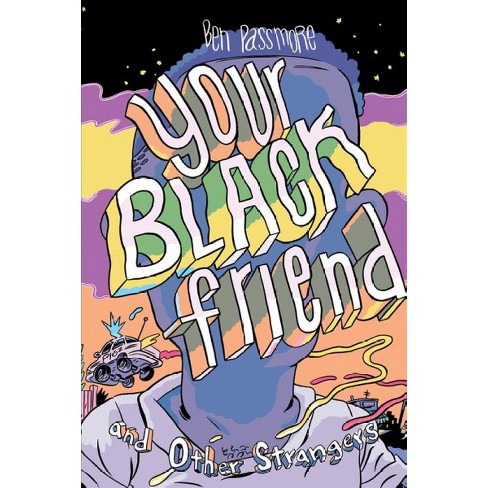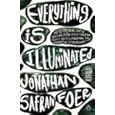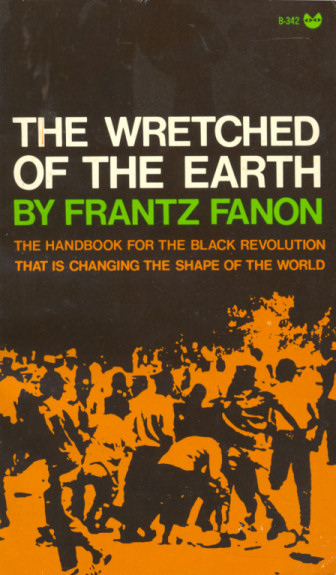Review by Nathaniel Kidd
Carrier might well be congratulated for offering a comprehensive and systematic account of his personal worldview: an ambitious book that is, on the whole, lively and comprehensible. Indeed, such a production is no small achievement. But while the system Carrier lays out is (presumably) satisfying to him, the extent to which it would satisfy anyone not already disposed to agree with him is another question altogether. Perhaps the fact that this book is self-published, and receives its reception and acclamation from the diffusive atheistic humanist community of "infidels.org" rather than an established channel of research, review, and reflection, offers some indication.
Carrier's project rests, somewhat comically, on a giant circular argument: assuming both (1) a universe utterly free of any supernatural substance of any kind and (2) the intrinsic meaningfulness of such a universe, Carrier goes on to defend these propositions by ... well, he doesn't defend them, actually, he just lays them out with bravado, and unshakable confidence that any other way of approaching the questions is either inferior to his own, or irrelevant to the conversation. Carrier might be forgiven for this: certainly, to some extent, most worldviews can be reduced to hermeneutical circles of this sort. But the concurrent assertion that he and his small band of atheist friends have alone mounted on the wings of Reason to arrive at Ultimate Truth reflects a rather staggering hubris, and leaves little wonder as to why atheists are often regarded as among the most aggravating and antisocial of subcultures. The tone, indeed, is reminiscent of the apologist who comforts the faithful by patiently explaining how the apparent contradictions within their Scriptures are not, in fact, contradictory. While such arguments have a place within the community, they are not especially impressive to those outside of it.
Such failings are, perhaps, to be expected. Without question (and by his own admission, no less) Carrier is a True Believer -- he is determined to believe only that which is True (with a capital "T.") Within this pursuit, he is utterly untroubled by any doubt as to whether there is such a thing as Truth, nor does not give a thorough contemplation of the limitations on the human mind that would reach out for it. The end result may work as a catechism for modern atheists -- and it seems, generally, to be representative of the movement -- but in broader perspective, the work is more sophomoric than philosophical. Carrier evidently loves to read and argue and think, but he has not yet had an encounter the kind of careful, disciplined, sustained criticism that could help him name and question some of his own driving assumptions.
For these reasons, it may be advisable even for the confirmed atheist to pass on Carrier, and look for a work that is more carefully wrought, deeply thought, and characterized by epistemic humility rather than Carrier's insuperable swagger. Still, the breadth and brevity of "Sense & Goodness" is not without is commendable qualities, and those attracted to (rather than repulsed by) the Carrier's sweeping approach and the pugnaciousness of his brand of atheism may find plenty to admire in its pages.

Review by Nathaniel Kidd
Methodologically and historically thought-provoking -- and of intrinsic interest to our region -- Morrissey's book lacks a clear structure and compelling argument. Moreover, the library copy has been very heavily annotated in sections, making it less than compelling as a reading experience. If worthy of thoughtful perusal, then, a better presentation of the subject remains a desiderium.

Review by Meg Duke
Absolutely incendiary. Tortuga's letters ignite the fire within and remind us why we fight; letters to Tortuga and a compilation of subsequent anarchist actions weave a web of solidarity that defies the isolation of our age and unites international struggles for freedom against systemic oppression.

Review by Bill Svoboda
It is both amazing and heartbreaking that practically all of this is so completely current. Highly recommended.

Review by Bill Svoboda
Reviewing a book about porn is safe and easy compared to reviewing a book about food & dietary habits. This book is a fierce crusade against vegetarianism in general and especially veganism. In my case, Lierre Keith was pretty much preaching to the choir- and NOT to the audience she's especially trying to reach (girls up to their middle teens). Even so, I felt she went overboard with some of her arguments -especially in the "Nutritional Vegetarian" section-I almost expected to look out my window and see malnourished, dead and dying vegetarian/vegans littering the landscape. The Vegetarian Myth is full of passionate and/or well documented arguments- but I'm not certain how effective arguments are against Myths-or if the way to a better world is through denouncing what others do or don't eat.

Review by Bill Svoboda
Another "three and a half stars", actually. If you skim this, it might seem like a combination of Thomas Pynchon, Hunter S. Thompson, and Susie Bright- and you'll be impressed by what a perceptive and insightful guy Zak Smith is. If you read it word by word, sentence by sentence, it becomes tedious- I started wondering who the editor was-or if there WAS an editor. In case you're wondering- much (most?) of both text and illustrations aren't especially sexually explicit and /or "pornographic"-most of the latter ARE however very punk-often with obsessive/surrealistic/psychedelic elements as well. The best part of We Did Porn is the "we" part- the stories of & about the people in the porn industry- too often the book was "I Did Porn".

Review by Meg Duke
Current and culturally relevant, this collection of Passmore's short comix is simultaneously hilarious and wicked serious. You'll be laughing... with furrowed brow... Recommend.

Review by Meg Duke
2.5 stars. The title had me in a second -- as did a freaky dream scene I had glimpsed while flipping through the pages. Upon finishing, I can say I was a little bummed out; the concept of a demon with deep-seated sex problems running a used bookstore in a car dealership tickled me, but the overall plot arc was disappointing.

Review by N8R Witham
HELLA REVIEW
Review by Sana Witham
once you go in there’s no going back
Review by Nathaniel Kidd
Deloria is well regarded as one the great pioneers in giving the indigenous voice credibility, and this book -- which he identifies as one of his most enjoyable to write -- certainly does not disappoint as a classic example of his thought and method. Throughout critical of the modern western institutions of religion, law, education, politics, and science, Deloria in this volume takes particular aim at scientistic narratives, uncovering some of the tacitly racist motivations in the formulation of evolutionary theories, and anthropological theses regarding the population of the Americas, but throughout he traces the interweaving of different techniques of dominating power woven through the dogmatic articulation of modern common sense. Ever the iconoclast, Deloria proposes that common truths are not, by virtue of being commonly held, therefore true, and challenges the hegemonic systems of contemporary knowledge to make way for additional ways of being and knowing. In all, it is a lively and enjoyable read; although his argument might have been strengthened by being more reflexively self-aware -- viz., tracing the parallel with other liberationist moving, and asking the question whether the convergence of liberationist voices might itself be a shadow of the dominant systems in need of an alternative.
Review by Bill Svoboda
An Anarchist and a Communist are in the same car together. Who is driving? (Answer at the end of this review!)
For me, this book was most valuable as a kind of "political autobiography" of Staughton Lynd. He is not exactly a "typical" Marxist- really he's more of a leftist Saint (along the lines of Eugene Debs). This book was published ten years ago-during happier times. While there was and still is much to be learned from both Wobblies and Zapatistas, there are serious problems toward adopting either one as a blueprint for success in today's USA.
Answer: A cop.

Review by Madeline Moulton
This is the one, it's it it's it it's it! Heavily imbued with natural imagery, magic that is Classical, specific Rothfuss-brand, and no-fuss ref/reverential towards global histories, Patrick has really done it. Some cool context: this one was 15 years in the making, and boiz does it show. Extremely thoughtful and endearing, the cheesiness is a welcome reprieve from the (at times) sad plot. But tragedy or travesty or comic or simply fiction, fear not - worth the emotional roller coaster to the max. The Name of the Wind remains secretive and elusive, but it's also accessible as all heck. (As far as a super long, super fantasy fantasy goes). hella dank.

Review by salishianantihero@riseup.net
This series was amazing! It starts off a little slow, somewhat resembling the standard ‘super-person’ comic ( this was nearly enough to make me quit it halfway through the first volume), but makes up for it with a literally mind-warping journey of the consiousness, soul, and spirit realm(s).
If you’re interested in the Tarot, Kaballah, Alleister Crowley, synchronisities, and how to manifest your reality, then this series is for you! It pretty much reads as a beautifully trippy illustrated guide to the above!

Review by Madeline Moulton
Frantz Fanon left a mark on our world with this one. Psychiatry be damned, this doctor had ideas, and he had the where with all to say 'screw the system', something here seems wrong, and Algeria is my passion. Or some such histoire, non? Either way, worth a read any time of the eon. RIP Stuart Hall, and long live la revolucion.

Review by Bill Svoboda
In the Author's Note at the beginning of the book, Humphrey Carpenter mentions that the first published biography of a subject is not necessarily the best place to make literary judgements- fair enough. He also avoids spending much time analyzing or criticizing the whole phenomena that LOTR has become (in 1977 this was already huge, but had hardly reached it's peak-both in terms of popularity and in over-all cultural influence). Respectful and well researched, this is a "must read" for Tolkien fans and/or those simply curious about J.R.R.

Review by Cody Harder
Reading "Frank" regularly keeps me regular.

Review by Kryssanne Adams
So yeah, as Alex said, this story is not focused on Buddha himself; Siddhartha isn't even born until the very end of the story. BUT, there's a reason for that, and it makes itself apparent as you read through the series. Yes, this series is a dramatized biography of Siddhartha, but it's also very (fictitious and real-life) character driven way that takes time to pay off; it's not JUST about the Buddha, it's about the people the Buddha loves too. Tatta is the his first disciple, and this is the story of his painful and traumatic childhood. It takes the whole series to come around and become fully relevant, but it does! Slow pacing on this story, but I promise it's worth it and if you keep reading, you'll learn how everyone's fate is entangled. Tezuka is brilliant.

Review by salishianantihero@riseup.net
This book changed my life in the most profound of ways. After finishing a degree in environmental science and becoming increasingly disenchanted with the seeming futility of “environmental activism,” I found the insights of this story incredibly timely and relevant. It’s told in the form of a Socratic dialogue between a telepathic gorilla (just get past that) and a cynical, but well-intentioned, man who discuss the hubris of human dominance, and how the stories we tell about our superiority are destroying ourselves and the biosphere we depend upon.
Daniel Quinn could be regarded as more of a philosopher than a fiction writer (though he has a few non-fiction books ‘Providence’ and ‘Beyond Cicilization’ which detail his journey and more succinctly lay down his core beliefs). While none of his writings will give you plain, easy answers to our problems of civilization (I wouldn’t trust him if he did), it does provide one with the tools and foundation of thought to create something that works for us wherever and however we might live.
If you have never read about post-civilization theory, but have thought about the seeming hopelessness of saving the biosphere that we are (not so) slowly killing, then this book is for you.

Review by Bill Svoboda
Two things about this book really stood out to me. The first, is that while this covers ground similar to many other authors (particularly American and male), and has so many influences (Thom Jones said he'd read at least 10,000 books-and I'd bet good money some of them were by Stephen Crane, Charles Bukowski, and Nelson Algren ) this book comes off as fresh and deeply personal. The second standout is while these stories may be bleak and/or violent, the overwhelming emotion I felt after reading them was compassion. Jones's "outsider" sensibility permeates every story.There's also some humor. One of the stories ("The Wipeout") is kind of a sly homage to Nelson Algren (and his affair with Simone de Beauvoir). Jones died in 2016- RIP.